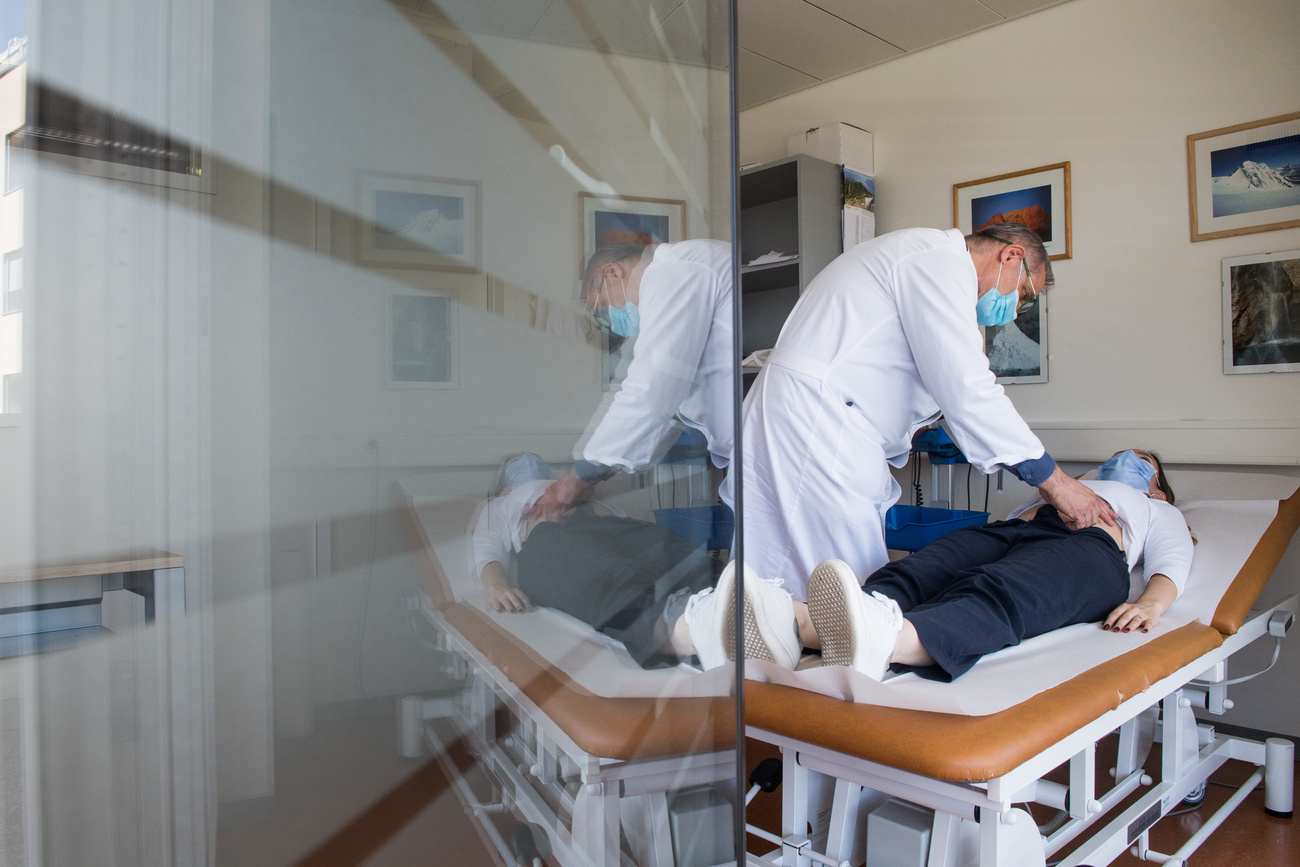
Long Covid: one in five patients still report symptoms after two years

Around one in five people suffering from long Covid in Switzerland still have symptoms - albeit mild ones - after two years, a study shows.
Researchers from the University of Zurich and the University of California interviewed over 1,100 adults living in canton Zurich who had caught Covid and had not been vaccinated against the virus. Their study was published in the British Medical Journal (BMJ)External link on May 31.
Their findings showed that almost a quarter (23%) of those suffering from Covid had not fully recovered after six months. This proportion decreased to 18.5% after 12 months, but 17% still had not recovered after two years.
“It is the first time we have been able to quantify the extent of a post-viral syndrome,” Milo Puhan, director of the Institute for Epidemiology, Biostatistics and Prevention at the University of Zurich, toldExternal link Swiss public radio SRF on Thursday.
+ Coronavirus: the situation in Switzerland
Between 4-6% of those who took part in the survey are moderately or severely impaired in everyday life, said Puhan.
They include people with major concentration difficulties, shortness of breath or permanent exhaustion.
“But what you have to say is that 70% have relatively mild symptoms, which tend to get better and don’t cause any major problems in everyday life,” said Puhan.
The total number of people living with long Covid in Switzerland is unclear. Switzerland’s Federal Social Insurance Office reports that over 4,000 people with long Covid have registered with the office since 2021. But the actual number is thought to be higher.
“It is very difficult to estimate how many people are affected today,” admits Puhan.
Long Covid sufferers and specialists have created interest groups and are calling for a national register and clear health recommendations and therapy studies.
Covid is no longer an emergency, says WHO
On May 5, the World Health Organization (WHO) announced that Covid is no longer a “public health emergency of international concern, or PHEIC” – the highest possible status under international health regulations, which was first applied to Covid on January 30, 2020. This change follows advice from WHO experts.
+ Covid-19 emergency is officially over – what does that mean?
WHO Director-General Tedros Adhanom Ghebreyesus said the pandemic had been “on a downward trend for more than a year, with population immunity increasing from vaccination and infection”.
Many countries have long dropped many of their pandemic restrictions. Switzerland announced the lifting of all Covid-19 restrictions as of April 1, 2022.
Despite progress in fighting Covid-19, health officials warn the virus will not fade away.
“The emergency phase is over, but Covid is not… while we’re not in crisis mode, we can’t let our guard down,” said Maria van Kerkhove, the WHO’s technical lead for Covid, on May 5.
Covid-19 will now be managed alongside other infectious diseases, but the risk remains of new variants emerging that cause new surges in cases and deaths, warns Tedros.
In Switzerland, the number of new lab-confirmed cases has fallen considerably since the start of the year, when federal authorities stopped covering the costs of tests. Covid meanwhile continues to circulate in Switzerland, albeit at a low level.

More
Doctors demand better co-ordination to solve Long Covid problems

In compliance with the JTI standards
More: SWI swissinfo.ch certified by the Journalism Trust Initiative


























You can find an overview of ongoing debates with our journalists here . Please join us!
If you want to start a conversation about a topic raised in this article or want to report factual errors, email us at english@swissinfo.ch.